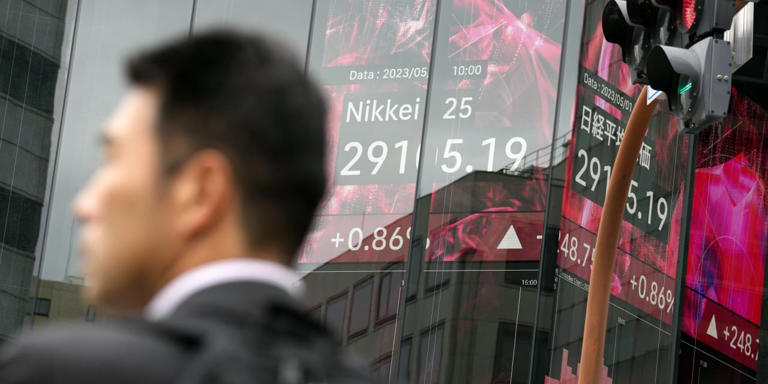The recent actions of hedge funds in the Japanese stock market have marked a significant shift, with institutions selling off equities at the fastest pace seen in five years. According to Goldman Sachs’ latest analysis, this aggressive selling activity has had a profound impact on the Nikkei index, a key benchmark for the Japanese stock market. This report delves into the details of this development, examining the factors driving the recent downturn, the implications for hedge fund strategies, and the broader market context.
The Recent Nikkei Slump
The Nikkei index, Japan’s premier stock market index, has experienced a notable decline, largely attributed to the surge in short sales by hedge funds. Between August 2 and August 8, Goldman Sachs’ prime brokerage division recorded a ratio of 1.7 short sales for every long sale, highlighting a pronounced bearish sentiment among investors. This aggressive shorting contributed to a dramatic 12.4% drop in the Nikkei, marking the most significant market crash since the infamous Black Monday of 1987. This recent plunge underscores the heightened volatility and investor uncertainty currently affecting Japanese equities.
Driving Factors Behind the Decline
Several key factors have driven the recent downturn in the Nikkei index:
- U.S. Recession Fears: Growing concerns about a potential economic recession in the United States have spurred global market anxiety. As the U.S. economy shows signs of slowing, investors are reassessing their global portfolios, leading to increased selling pressure on international markets, including Japan.
- Bank of Japan’s Interest Rate Decisions: The Bank of Japan’s monetary policy adjustments have added to market uncertainty. Recent moves to alter interest rates have influenced investor sentiment, contributing to the negative performance of Japanese stocks.
- Stronger Yen: The Japanese yen’s appreciation has further exacerbated market concerns. A stronger yen impacts Japan’s export-driven economy by making Japanese products more expensive for foreign buyers, thereby putting additional strain on Japanese equities.
Impact on Hedge Fund Exposure
The recent market turmoil has led hedge funds to significantly adjust their exposure to Japanese stocks. From a peak exposure of 5.6% in late July, hedge funds reduced their stake to 4.8% in early August. This reduction, although significant, still reflects relatively high exposure levels compared to historical averages over the past five years. This shift follows a period of considerable reduction in hedge fund exposure during the COVID-19 pandemic, when exposure dropped from over 6% in 2020 to around 2% in 2022.
Sector-Specific Trends in Trading Activity
The downturn in the Nikkei has also influenced sector-specific trading patterns. The recent market activity has been marked by a sharp increase in trading volumes through Goldman Sachs’ prime brokerage, reflecting a broader trend of market volatility. Key observations include:
- Net Selling of Sectors: The sectors most affected by net selling include industrials, financials, and healthcare. These sectors have seen significant outflows as investors reposition their portfolios in response to market conditions.
- Consumer Staples: In contrast to the broader trend, the consumer staples sector has experienced net buying, driven primarily by short covering. This indicates a strategic shift among investors, who are seeking relative stability in more defensive sectors amidst the broader market turbulence.
The Broader Market Context
The broader market context reveals a pattern of heightened volatility and strategic adjustment by institutional investors. The significant increase in trading activity and the sector-specific trends highlight the complex dynamics influencing the financial landscape. Investors are navigating an environment characterized by global economic uncertainties, policy shifts, and evolving market sentiments.
Future Outlook and Implications
Looking ahead, the recent actions of hedge funds and the resulting market movements suggest a continued period of volatility in the Japanese stock market. Investors will need to closely monitor these developments and their potential implications for global equity markets. The ongoing adjustments in hedge fund strategies, coupled with the broader economic conditions, will likely shape market trends and investor behavior in the coming months.
In summary, the recent sell-off by hedge funds and the subsequent decline in the Nikkei index reflect a complex interplay of domestic and international factors. The heightened volatility and sector-specific movements provide a critical lens through which to understand the current financial environment and anticipate future market developments.
